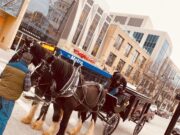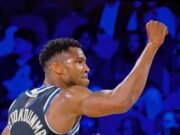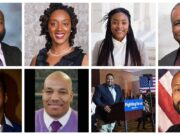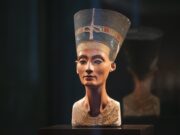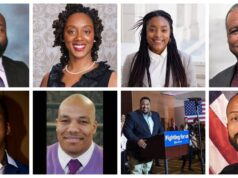When my sons were young, I regularly, but reluctantly, took them to the movies to see their beloved Kung Fu films. My boys loved Bruce Lee and I sat through “Fists of Fury,” “Enter the Dragon,” and “The Way of the Dragon.” None of these films made much sense to me. I would regularly ask questions about the anomalies and discontinuities in the plots only to have one of the boys or another audience member place a finger to their lips and go, “Shhhh!” I soon learned that these movies were not about plot, theme, or moral. They were all about the fighting and my kids couldn’t get enough of them.
I would not come to appreciate Kung Fu movies until many years later when “Crouching Tiger, Hidden Dragon” was released in 2000. Here was a film with a coherent plot, beautiful scenery, and a female protagonist.
However, I had a chance to see the film I wished I could have taken my kids to — “Black Panther.” On the surface, this film is just another comic book adaptation like “Superman,” “Batman,” “Captain America,’ “Wonder Woman,” or “The Avengers.” All of these films have done well at the box office and all have focused on Euro-American superheroes who save the world. But Black Panther is the first feature film that showcases a black superhero from Africa — the fictional nation of Wakanda.
Unlike its predecessors, “Black Panther” is decidedly black — not just a “white” superhero in blackface. No, “Black Panther” is decidedly political, cultural, spiritual, and racial. It asks its audience to think about the world we created and the world we want to live in. For this blog post I want to take up 3 reasons why I want black children (well, black people) to see this film:
Strong black men in collaboration with strong black women: “Black Panther turns our typical sense of masculine and feminine on its head. It says a strong black man is not intimidated by a strong black woman. Indeed, the message of the film is that a black man’s strength is enhanced and elevated by strong black women. T’Challa’s mother, sister, love interest, Dora Milaje (women warriors) and Okoye the warrior general were women who made their King better and central to the film.
Being smart is “acting black:” So much of the discourse about black children and academics focuses on a mythology that suggests being academically excellent is tantamount to “acting white.” “Black Panther” dispels this notion by making the mythical nation of Wakanda a place with the highest level of science and technology in the world! T’Challa’s sister, Shuri is a scientific/technological genius. The citizens of Wakanda understand how to use their country’s natural resources. They are entrepreneurs, farmers, pilots, physicians, herbalists, griots, and secret agents to name a few of the careers displayed in the film. They are smart AND they are black!
Respect for the ancestors: In our highly technological and increasingly fragmented world, each age cohort seems solely caught up with its own group. Tweens hang with tweens, teens hang with teens, twenty-somethings hang with twenty some things. Our elders are secreted away in nursing homes or “senior living communities.” We have places like Sun City or The Villages in Florida where people under the age of 55 are not even allowed to live. However, in Wakanda we saw the generations come together in ceremonial occasions. Children were not kept away from the cultural secrets. Even the King could not complete his coronation without a visit to the “ancestral plane” where he consults with his deceased father.
In addition to these three themes I want to take a lighter look at what I think of as the 5 Blackest moments in the Black Panther film:
When Okoye snatched off her wig and threw it at the White man— You know you are in trouble when a sister takes her hair off. Granted. Okoye did not want to wear the wig in the first place but because of her distinctive Wakandan shaved head she agreed, reluctantly to wear the wig as a part of the mission to Korea. But when the “stuff” hit the fan she snatched off her wig, threw it, and began kicking butt and taking names. It was a “black” moment.
When Shuri told T’Challa, “Great, another broken white boy for me to fix” — This is how so many black people feel on their jobs when we end up having to train less qualified people to take jobs supervising us. Some of us look at the incompetence of White colleagues and are bewildered that we have to pretend like their mediocrity is lauded as excellence. Many of my relatives who have served as domestics in White households have shared stories of “fixing broken” white women and their children in order to make their jobs bearable. Shuri’s outspoken declaration was a “Black” moment.
When W’Kabi asks Okoye, “Would you kill me my love?” and she replies, “For Wakanda? … No question!”—reminds me of the many times Black women have to make pyrrhic choices. The welfare system required many Black mothers to make a choice between keeping a man in their home and receiving the kind of financial assistance to pay the rent and keep food on the table. They had to put that man out “for Wakanda”—for their futures. Don’t give black women an ultimatum unless you are prepared for them to take the choice you don’t want. Okoye gave us a really “black” moment.
The barking to drown out the “whitesplaining” — Oh, that was a black moment. When Agent Ross tried to open his mouth with an authority he did not possess the Jabari started barking like crazy. As I sat there all I could think was, “Wow, I’d love to do that in a department meeting!” When nobody really wants to hear the party line it’s time to start barking. Wouldn’t it be cool if the reporters in the White House Press Corps would start barking whenever Sarah Huckabee Sanders started in with another of those ridiculous explanations to cover for Donald Trump? It would be a really “black” moment.
Finally, when Erik Stevens (a.k.a. Killmonger) shows up in the Wakandan court and says to Ramonda (Angela Bassett), “Hi Auntie” — It is the most inappropriate truth of the moment. It is true she is his aunt. It is also true that nobody wants to acknowledge it. It’s like an “outside” child showing up at daddy’s funeral and wrapping her arms around the “real” kids. It’s both true and inappropriate and it’s the kind of thing that regularly happens in Black families. It was a really “black” moment.
Black Panther is not a perfect film, but it is a good movie and it is the film we need right now. It has some obvious shortcomings when we think about how the Wakandans are reluctant to truly help the rest of the world, and the rest of the continent of Africa, in particular. However, the nature of superheroes is that they need conflict and if Wakanda fixes all the problems we have no sequels to look forward to. This film provides the escape we desperately need at this moment. We are in a political and social morass. We see children senselessly killed in their school classrooms. We know a foreign government—Russia—interfered in our Presidential elections. We see a rise in hate crimes. We can get no relief from the police shootings of unarmed African Americans. We needed some escape and what better place to escape to than Wakanda (forever)!



